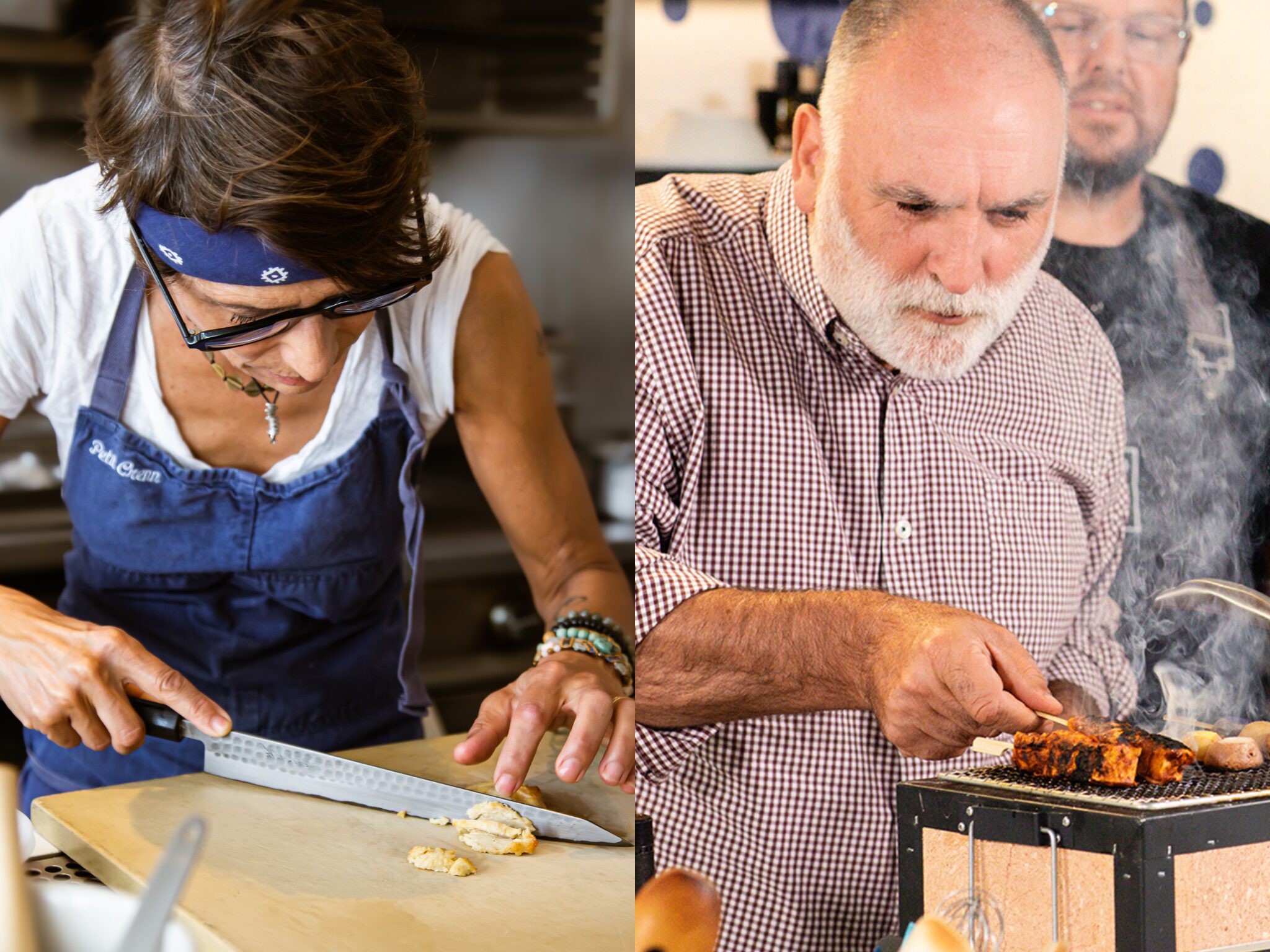As GOOD Meat & UPSIDE Foods End Restaurant Collabs, What’s Next for Cultivated Meat Tastings?
7 Mins Read
The restaurants serving cultivated meat in Singapore and the US have stopped doing so – as the industry enters a crucial year for regulation and commercialisation, what’s next for consumers hoping to taste cultured meat?
July 2023 was a landmark moment for cultivated meat. It was the month after Californian startups Eat JUST’s GOOD Meat and UPSIDE Foods received USDA approval to sell their cultured chicken nationwide, and became the month that saw the debut of these products in restaurants.
UPSIDE Foods’ chicken made its way onto the menu of Dominique Crenn’s Michelin-starred eatery Bar Crenn in San Francisco, while José Andrés’ Washington, DC restaurant China Chilcano debuted GOOD Meat’s product, which rolled out for public tasting weeks later.
“It represents a giant leap towards a world where people no longer have to choose between the foods they love and a thriving planet,” UPSIDE Foods CEO Uma Valeti said at the time, summing up the weight of the occasion. “I can’t wait for more people to get their first bite – it’s a magical moment that inspires an exciting world of new possibilities.”
Now, however, people can’t get those bites anymore, not in the same capacity anyway. UPSIDE Foods and GOOD Meat have hit pause on their restaurant collaborations for now. And that’s not just in the US – GOOD Meat’s products are no longer available in Singapore either, which was the first country to approve the sale of cultivated meat anywhere in the world.
In a year earmarked as a milestone for regulatory pathways and commercialisation of cultured meat – with Israel’s Aleph Farms becoming just the third company to earn clearance last month – where does that leave the industry?
Cultivated meat no longer on sale – but not for long
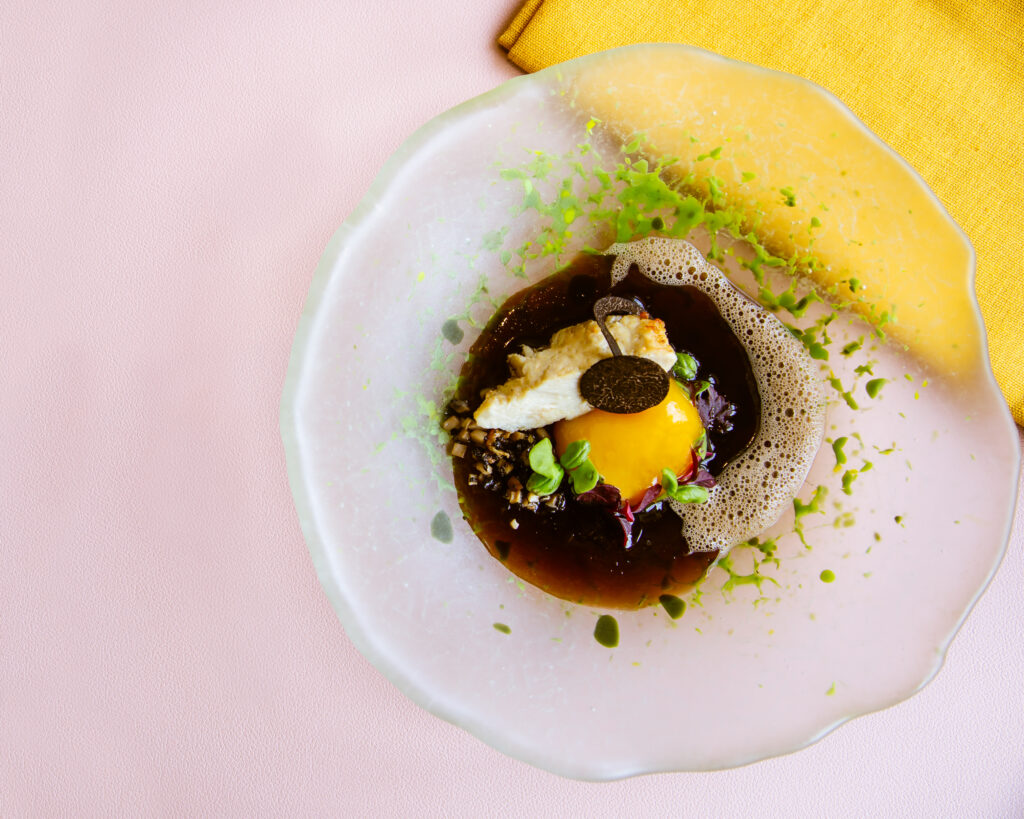
Last week, UPSIDE Foods announced that it had “wrapped up” its dinner series at Bar Crenn, and was taking its chicken “on the road”. “This was the close of the first chapter of our journey… A chapter filled with hope, predictions, aspirations [and] incessant scepticism,” Valeti wrote in a LinkedIn post. “All of these milestones were deemed as impossible and unachievable just a few years ago.”
This came after China Chilcano paused reservations for its tasting menu featuring GOOD Meat’s chicken in September. “Please check back soon for information on the next availability,” its website reads. Sales of GOOD Meat’s cultivated chicken in Singapore have also paused for the time being.
“The most important activities for GOOD Meat are related to process development and lowering costs long-term. We are focusing our efforts and resources on those tasks at this time,” Eat Just’s global communications director, Carrie Kabat, told Green Queen.
While the company couldn’t share figures like the number of dishes or diners served, Kabat said the dinners held at China Chilcano “went extremely well”. “Reviews from diners were overwhelmingly positive,” she said. These included snippets from the likes of Food Fix’s Helena Bottemiller Evich – “Tastes like chicken? It really does” – and the Good Food Institute (GFI) founder Bruce Friedrich – “The highlight of my year (no second place)”.
“Based on the feedback from diners, we learned that people really like eating cultivated chicken instead of slaughtered chicken,” added Kabat.
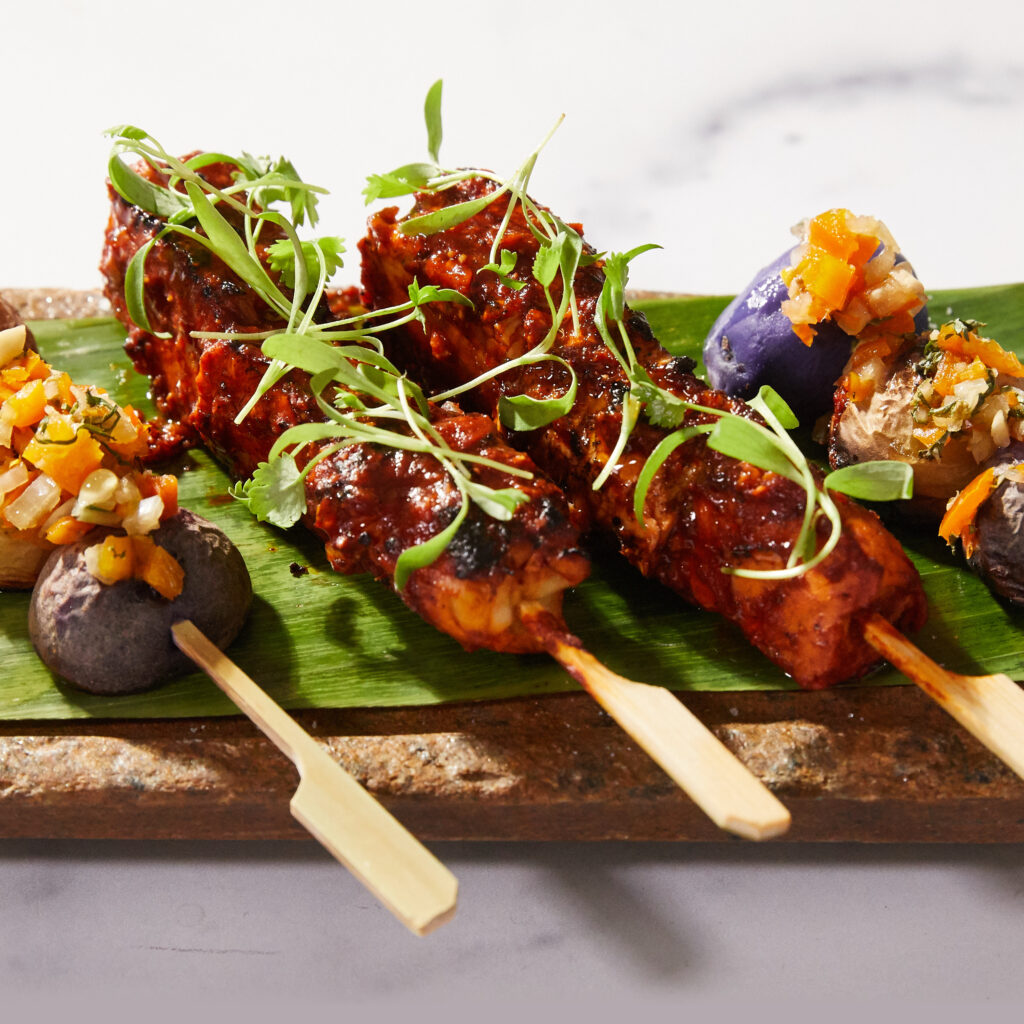
UPSIDE Foods received similar feedback at Bar Crenn, where it completed seven services in total. Critics were impressed by the product, with the Washington Post describing it as “the kind of chicken that once was common in America, before the poultry industry sacrificed flavour for rapid growth” and Eater noting that “the meat itself was less sickly white than supermarket birds, and the taste evoked the kind of nostalgic, delicate meatiness proper chicken should provide”.
The company has hit back at the Bloomberg story, calling its claims “inaccurate and misleading”. “This occurred despite our team’s extensive efforts to educate Bloomberg’s reporters over many months and despite outreach to their editors, general counsel, and standards editor to express our concerns regarding the investigative and reporting process,” the company said. “They have refused to fairly reflect UPSIDE’s progress in the story, and the article reads more like an opinion p
Eat JUST, meanwhile, has been embroiled in legal battles with suppliers and experiencing financial troubles, while UPSIDE Foods has been subject to negative press from Wired and Bloomberg over its progress.
Eat JUST co-founder and CEO Josh Tetrick disputed allegations of financial stress, telling Green Queen in November that the business experienced huge EBITDA and gross margin growth last year. “we are focused on the daily execution of our zero-burn plan (i.e., cover operating costs through margin dollars) and serving our customers,” he said. “If we execute, the company and its missions win. It’ll be challenging and hard – and it’s up to us to get it done.”
Where you can try cultured meat next
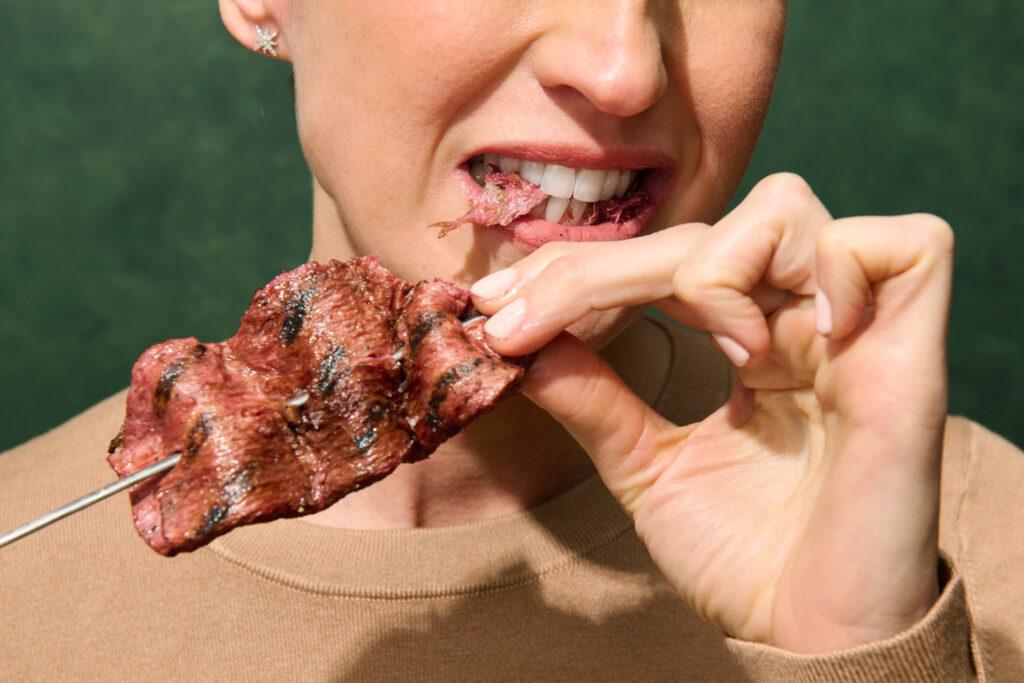
These developments don’t really spell doom for public tastings of cultivated meat – quite the opposite, in fact. With a considerable amount of buzz generated, the focus for these companies is now on cost-cutting, “process development” (as Kabat touched upon), and creating “next-gen, larger-scale products” (which is what UPSIDE Foods is working on).
“We plan to resume tastings for the public this year,” said Kabat. UPSIDE Foods similarly aims to relaunch sales soon – it’s working with Crenn and other chefs to serve its cultivated chicken at events starting next month. “We are proud to have partnered with Chef Dominique Crenn to make history, from the first-ever US sale of cultivated meat to a series of UPSIDE dinners at Bar Crenn that delighted consumers with a delicious taste of the future,” a brand spokesperson told Green Queen.
In his LinkedIn post, Valeti said: “We look ahead to the next chapter of our journey as we go from first sale to significant scale. We are again ready to take on first-of-their-kind challenges [and] sceptics, including renewed attempts to ‘ban’ our progress.”
“We are still at the very early stages of cultivated meat’s entrance into the marketplace,” GFI’s senior VP of communication, Sheila Voss, told Wired. “As we saw in Singapore, the first country in the world to approve the sale of cultivated meat, the rollout to consumers migrated across fine dining restaurants, home delivery, and hawker stalls, highlighting the versatility of this product, and we expect similar introductory rollouts in the US.”
But it’s not just Americans who can look forward to trying cultivated meat products soon. After gaining regulatory approval in its home country, Aleph Farms is now undergoing final labelling and mark-of-facility inspections. Once passed, it will introduce its Black Angus Petit Steak under the Aleph Cuts banner to diners, offering exclusive tasting experiences curated in collaboration with select partners.
“At first, the product will be available in select restaurants,” Yoav Reisler, senior marketing and communications manager at Aleph Farms, told Green Queen last month. “Afterwards, it will become available at foodservice and retail locations.”
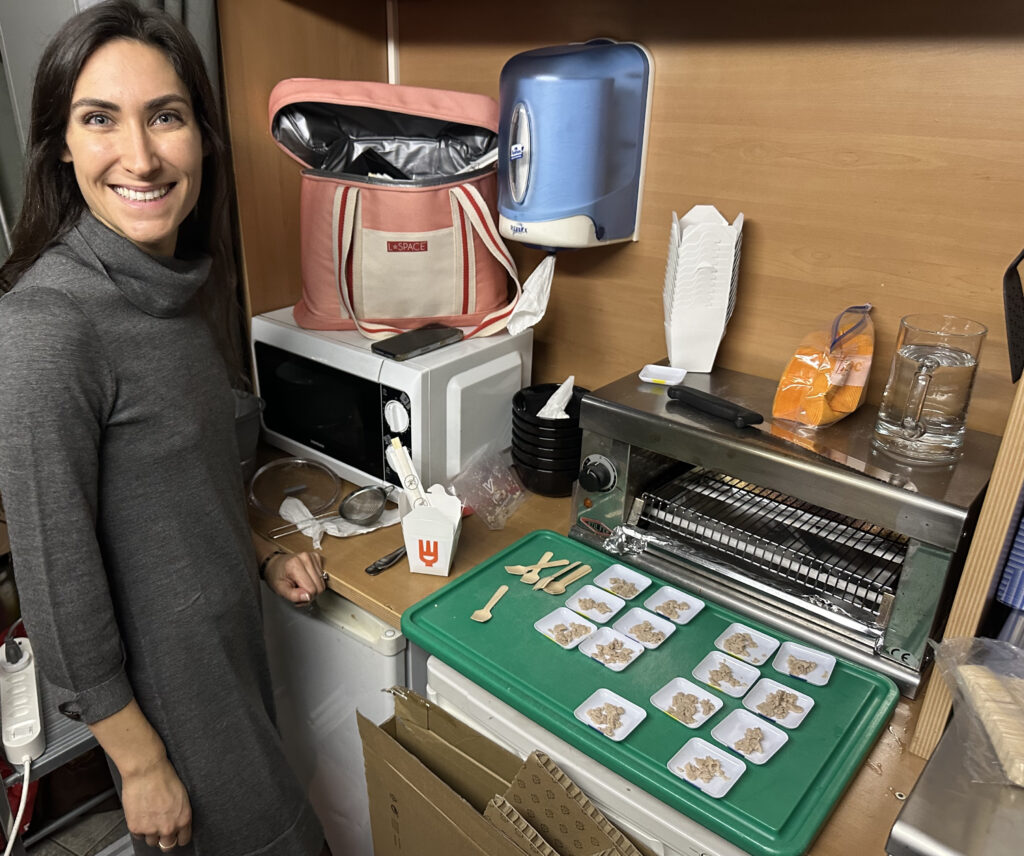
Aleph Farms will hope to do the same in the other countries it has filed for approval in: Singapore, the US, the UK and Switzerland. The latter actually was host to its first cultivated meat tasting last month, when US food tech startup Fork & Good welcomed 40 diners at a pub in Davos to sample and tell the difference between conventional pork and its hybrid pork (a blend of 70% plant protein and 30% cultivated pork).
According to an informal poll, more than half of the tasters preferred the hybrid meat, while the group was split when asked to guess which dish contained cultivated meat.
Another hybrid pork company hoping to host public tastings for diners is the Netherlands’ Meatable. After holding two tasting events in Singapore in 2023 – where it plans to roll its product out later this year – the company has filed a dossier to the Cellular Agriculture Netherlands Foundation’s newly created independent expert committee. The panel is the final hurdle for companies hoping to give people a taste of their product, and would make the Netherlands the first EU country to make pre-regulatory-approval tastings possible.
With more regulatory approvals expected this year, it’s safe to assume that you’ll be able to try cultivated meat in a restaurant again soon – and it won’t just be from two producers.


